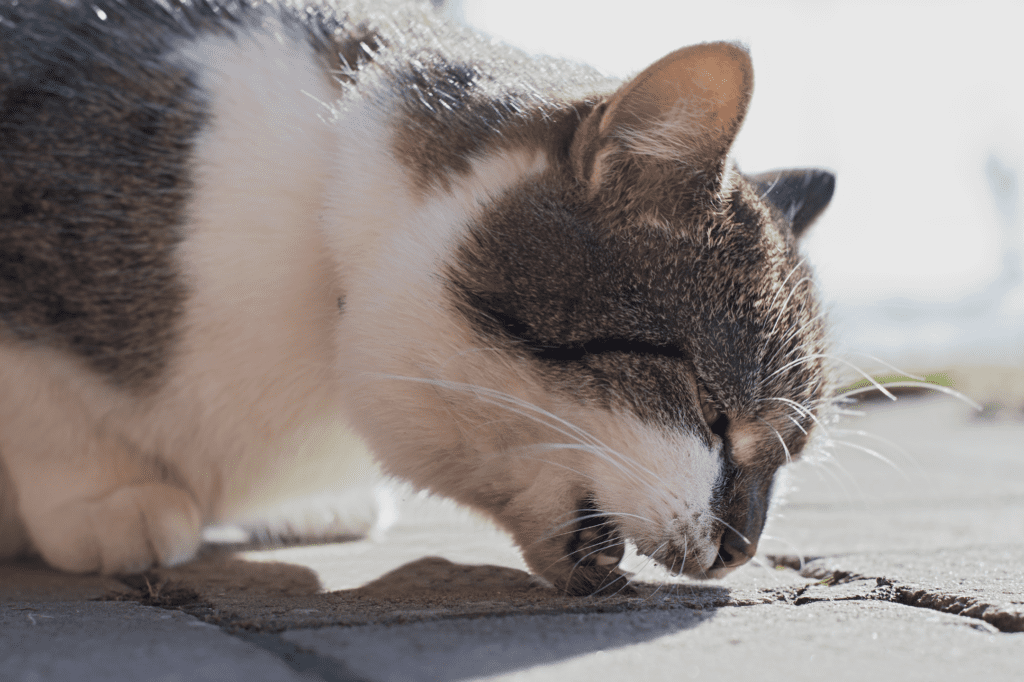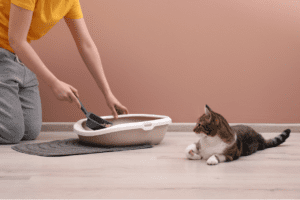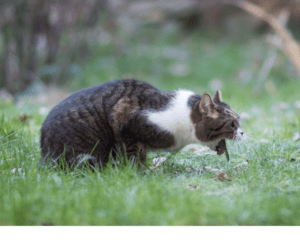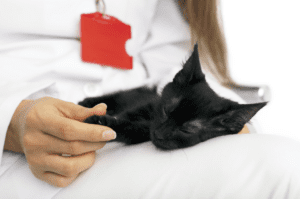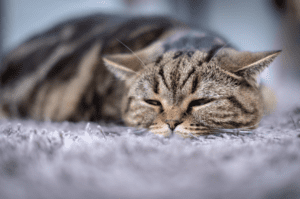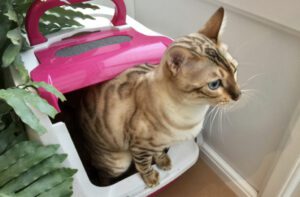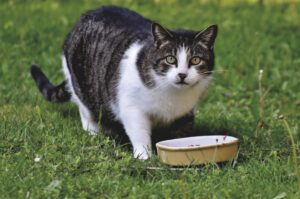Cats are adorable and loving pets but are quite susceptible to many different health conditions. One of the common health problems that owners have to deal with is cat vomiting and diarrhea. While it is normal for cats to vomit and have diarrhea occasionally, frequent episodes can indicate an underlying health issue that needs to be addressed.
Is Vomiting and Diarrhea in Cats An Emergency?
Vomiting and diarrhea in cats can be a sign of a minor digestive upset, but they can also indicate a more severe condition that requires prompt veterinary attention. If your cat is experiencing frequent or severe vomiting and diarrhea, you should consider it an emergency and seek veterinary care immediately.
Reasons for Vomiting in Cats
Vomiting in cats is a common problem that can be caused by various reasons. Some of the most common reasons for vomiting in cats include the following:
- Hairballs – Hairballs are a common cause of vomiting in cats. When cats groom themselves, they swallow hair, which accumulates in their stomachs. As the hair gathers, it can irritate the stomach and lead to vomiting.
- Dietary intolerance – Some cats may have food allergies or sensitivities that cause them to vomit after eating certain foods. This can include anything from a simple intolerance to a specific ingredient in their food to more complex digestive problems like inflammatory bowel disease.
- Infections – Cats can develop gastrointestinal tract infections, such as gastroenteritis or colitis, which can cause them to vomit.
- Foreign bodies – Cats are curious creatures and may ingest things they shouldn’t, such as string, toys, or other objects. These foreign bodies can obstruct the digestive tract leading to vomiting.
- Poisoning – Cats can be exposed to toxic substances like plants, chemicals, or medications, which can cause them to vomit.
- Motion sickness – Some cats may experience motion sickness when traveling in a car, plane, or boat, leading to vomiting.
Reasons for Diarrhea in Cats
Diarrhea in cats is a common problem that can be caused by a variety of reasons. Some of the most common reasons for diarrhea in cats include the following:
- Dietary changes – Suddenly changing a cat’s diet can cause diarrhea. It is vital to introduce new foods gradually to allow the cat’s digestive system to adjust.
- Food intolerance – Some cats may be intolerant to certain ingredients in their food, leading to diarrhea.
- Infections – Cats can develop infections of the gastrointestinal tract, such as bacterial or viral infections, which can cause diarrhea.
- Parasites – Parasites such as worms and protozoans can cause diarrhea in cats. Common parasites include roundworms, hookworms, and giardia.
- Inflammatory bowel disease (IBD) – IBD is a chronic condition affecting cats’ digestive tract. Symptoms can include diarrhea, vomiting, and weight loss.
- Stress – Stress can cause diarrhea in cats, especially when they are introduced to new environments or new pets.
How To Treat Cat Vomiting and Diarrhea
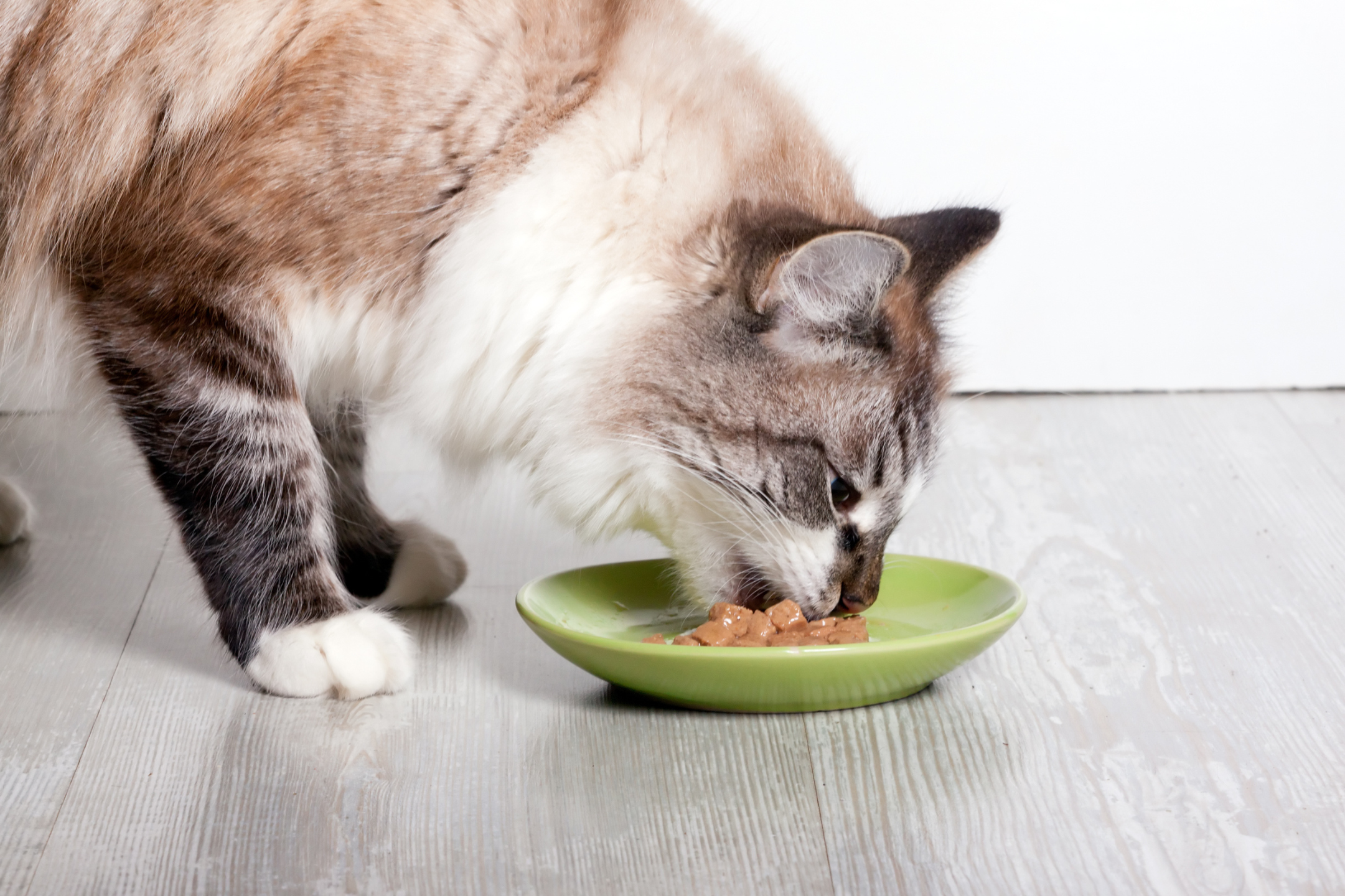
Fortunately, there are several steps that cat owners can take to treat and prevent vomiting and diarrhea in their feline friends.
-
Identify the cause.
The first step in treating vomiting and diarrhea in cats is identifying the underlying cause. To do this accurately, it is best to visit a veterinarian. They can perform a physical exam and recommend diagnostic tests to determine the root cause of your cat’s symptoms.
-
Manage your cat’s diet.
In many cases, managing your cat’s diet can help alleviate vomiting and diarrhea. This may involve feeding your cat a bland diet of boiled chicken and rice or switching to a hypoallergenic or prescription diet recommended by your veterinarian. It’s important to avoid feeding your cat any human food or treats during this time, as this can aggravate their digestive system and prolong their symptoms.
-
Provide supportive care.
In addition to managing your cat’s diet, there are several other ways to provide supportive care that can help alleviate their vomiting and diarrhea symptoms. You may also give cat probiotics or digestive enzymes, which can help restore the natural balance of bacteria in their gut and aid in digestion.
You can also give your cat electrolyte solutions to help prevent dehydration. These can be found at your local pet store, or you can make your own by mixing a teaspoon of salt and sugar in a liter of water. Offer small amounts frequently to your cat to prevent them from drinking too much at once.
-
Monitor your cat’s symptoms.
Closely monitoring your cat’s symptoms is crucial to determine whether they improve or worsen. If your cat’s vomiting or diarrhea persists for over a day or two, or if they become lethargic, dehydrated, or lose their appetite, it’s time to take them to the veterinarian for a check-up.
Preventing Future Episodes
Prevention is vital when it comes to vomiting and diarrhea in cats. Here are a few tips to help prevent vomiting and diarrhea from recurring:
- Gradually introduce new foods or treats to your cat’s diet, rather than suddenly changing their diet.
- Keep your cat’s environment clean and free of toxins or hazards they may ingest.
- Regularly deworm your cat and keep them up to date on their vaccinations to prevent infections.
- Provide plenty of fresh water and clean litter boxes to maintain good hygiene.
- If you have multiple cats, ensure each has their own food and water bowl and litter box.
- Finally, give your cat plenty of love, attention, and playtime to help reduce stress and promote overall health.
